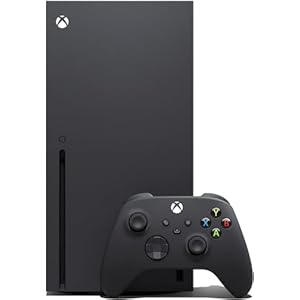
In the world of console gaming, two names stand out: Xbox and PlayStation. Both have been vying for the top spot in gamers’ hearts and living rooms for decades, each bringing its unique strengths and experiences. This post dives deep into the main differences between Xbox and PlayStation, covering everything from exclusive games to hardware performance, online services, and more.
Exclusive Games
Xbox
Xbox, developed by Microsoft, has a strong lineup of exclusive titles that cater to a wide range of gamers. Series like “Halo,” “Gears of War,” and “Forza Motorsport” have become synonymous with Xbox gaming, offering first-person shooter, third-person shooter, and racing experiences, respectively. Recently, with the acquisition of Bethesda, Xbox has added even more prestigious titles to its exclusive list, including future entries in the “Elder Scrolls” and “Fallout” series.
PlayStation
Sony’s PlayStation, on the other hand, is renowned for its critically acclaimed exclusive titles that often emphasize narrative-driven experiences. Games like “The Last of Us,” “God of War,” and “Spider-Man” have not only received high praise for their storytelling and gameplay but have also been significant selling points for the console. The diversity in PlayStation’s exclusive catalog, from action-adventure and RPGs to unique indie titles, showcases Sony’s commitment to varied gaming experiences.
Hardware Performance
Xbox Series X
The Xbox Series X, the latest in the Xbox lineup, is a powerhouse in terms of hardware. It boasts a custom 8-core AMD Zen 2 CPU, 12 teraflops of graphical power, and 16GB of GDDR6 memory. This allows for higher frame rates, faster loading times, and more immersive gaming experiences. The Series X also supports up to 8K resolution and 120 frames per second (fps) for some titles, pushing the limits of high-definition gaming.
PlayStation 5
The PlayStation 5 matches closely with the Xbox Series X in performance. It features a custom 8-core AMD Zen 2 CPU, 10.3 teraflops of graphical performance, and 16GB of GDDR6 memory. While slightly behind in raw graphical power, the PS5 makes up for it with its custom SSD, which significantly reduces loading times and enhances the overall gaming experience. The PS5 also supports 8K resolution and up to 120fps for specific games.
Online Services
Xbox Live Gold and Xbox Game Pass
Xbox’s online service, Xbox Live Gold, offers online multiplayer capabilities, free games, and discounts on the Xbox Store. Additionally, Xbox Game Pass has become a game-changer, offering a subscription-based service that gives players access to a vast library of games across Xbox, PC, and cloud gaming. This includes all first-party titles on the day of release and a growing list of third-party and indie games.
PlayStation Plus and PlayStation Now
PlayStation Plus provides similar benefits to Xbox Live Gold, including online multiplayer, free monthly games, and store discounts. PlayStation Now, Sony’s subscription service, offers a library of PlayStation games for streaming or download, spanning from classic titles to recent releases. However, it’s worth noting that PS Now’s library and features have generally been seen as less competitive compared to Xbox Game Pass.
Controller Design
Xbox Wireless Controller
The Xbox Series X/S controller builds upon the design of its predecessor, known for its ergonomic shape and responsive buttons. It introduces a new Share button for capturing and sharing gameplay moments and a hybrid D-pad for more precise inputs. The controller is praised for its comfort, especially during extended gaming sessions.
PlayStation DualSense Controller
The DualSense controller for the PlayStation 5 has received acclaim for its innovative features, such as adaptive triggers and haptic feedback, which provide immersive tactile experiences that mimic real-life actions, like drawing a bowstring or feeling the resistance of driving on rough terrain. The DualSense also includes a built-in microphone and speaker, enhancing online interactions and in-game audio cues.
Backward Compatibility
Xbox
Xbox has taken significant strides in backward compatibility, allowing players to enjoy a vast catalog of games from previous generations (Xbox, Xbox 360, and Xbox One) on the Series X/S. This commitment to game preservation ensures that favorites from the past remain playable on modern hardware.
PlayStation
PlayStation 5 offers backward compatibility with the majority of PlayStation 4 titles, allowing players to carry forward their game library. However, compatibility with games from earlier PlayStation generations (PS1, PS2, and PS3) is more limited, primarily available through PlayStation Now rather than direct play.
Ecosystem and Future Outlook
Xbox Ecosystem
Xbox has focused on creating a seamless ecosystem that spans consoles, PC, and mobile through cloud gaming. With Xbox Game Pass Ultimate, players can access their games across multiple platforms, promoting a more integrated gaming experience.
PlayStation Ecosystem
PlayStation continues to emphasize the console experience but has made strides in integrating with PC and mobile through remote play and select game releases. Sony’s focus remains on delivering high-quality exclusive titles and enhancing the PS5 ecosystem with unique hardware features like the DualSense controller.
Conclusion
Choosing between Xbox and PlayStation often comes down to personal preferences in games, desired hardware features, and the value of online services and ecosystem integration. Xbox shines with its powerful hardware, expansive backward compatibility, and the Xbox Game Pass subscription service. PlayStation stands out with its compelling exclusive titles, innovative controller design, and solid hardware performance.
In the end, both consoles offer something unique for gamers, and the decision often hinges on which platform’s offerings align more closely with individual preferences and gaming styles.


